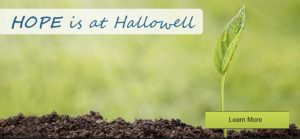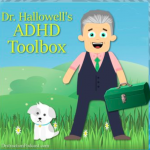Perhaps you’re asking, why should I worry about feeding my ADHD Brain? My reply would be, “How many times have you heard it said, ‘You are what you eat?’ “ We know that an unhealthy diet contributes to heart disease, high blood pressure, stroke, cancer and diabetes. It’s ironic, however, that the subject of food rarely comes up when we talk about the mind and the brain – an area where what you eat is as powerful, if not more so, than any medication. It is such an obvious point that it usually goes overlooked. The most common errors, like skipping breakfast or self-medicating with food, can sabotage the best of treatment plans.
In recent years, the whole field of diet and the brain has really taken off. Gradually, we have come to take nutrition seriously, viewing food as the remarkable “drug” that it is – carrying with it enormous potential to make us well … or to make us sick.
Nutrition and ADHD
When it comes to treating Attention Deficit Hyperactivity Disorder (ADHD) and other cognitive and emotional conditions, diet and nutrition play an important role. If you do not eat properly, you can become distracted, impulsive, and restless, not to mention develop all sorts of other symptoms. You can look like your have ADHD, even if you do not. Therefore, the treatment of ADHD – as well as any effort to lead a healthy life- must now consider diet as an essential component of a proper regiment.
A diet high in carbohydrates, sugar, trans-fatty acids (and all those other ingredients contained in the many processed foods we Americans love to consume) is not beneficial for anyone, least of all people coping with ADHD. People with ADHD need to “feed” their brains with the right kinds of foods. So what are these “right” kinds of foods?
OMEGA-3 FATTY ACIDS
One of the most important recommendations doctors are starting to make to their patients is to supplement their daily diet with omega-3 fatty acids. Current estimates suggest that the average American eats only 125 milligrams of omega-3 fatty acids per day, which is only about 5% of what the average American ate a century ago. Low levels of omega-3 fatty acids lead to chronic inflammation throughout the body, which in turn increases the risk of heart disease, cancer and diabetes. We also know that omega-3 fatty acids increase the levels of dopamine in the brain. Dopamine is the neurotransmitter that ADHD medications act to increase. Therefore, although not yet proven, it is logical to speculate that omega-3 fatty acids may provide a specific nutritional treatment for ADHD.
Tips to “Feed” Your Brain:
- Always eat breakfast, and eat protein as part of that breakfast. Protein is the best long-lasting source of brain fuel.
- Eat lots of foods with vitamin C. I say eat because the Vitamin C in pills is not as good as the vitamin C you get from eating fruits and other foods that contain vitamin C.
- Blueberries and grape-seed extract are rich in antioxidants and may help improve memory.
- Super blue-green algae may be even better than blueberries for cognition and memory.
- Eat foods rich in omega-3 fatty acids – like wild salmon, sardines, and tuna.
- Also take a daily supplement of omega-3 fatty acids, which can be found in fish-oil, as well as in flaxseed, flaxseed oil, and certain other plant sources.
- Take a daily multivitamin supplement that contains vitamin C, vitamin B-12, folic acid, vitamin E, selenium and others (but be careful not to overdose on the fat-soluble vitamins, which are A, D, E and K).
- Drink lots of water. This is good for you in many different ways. Eight glasses is a good amount.
- Finally, eat a balance diet, of course. The meaning of balance changes as we learn more. Avoid junk foods. Try to eat fresh foods, and avoid foods that come in boxes, bags, wrappers, packages or tubes.
NOTE: When it comes to vitamins and any kind of supplements, remember to always consult with your doctor first, who should always supervise what you’re taking.
Wellevate
 We want to make it as easy as possible for you to access high quality vitamins and supplements to help you achieve your health goals. That’s why we have opened our own online store called Wellevate.
We want to make it as easy as possible for you to access high quality vitamins and supplements to help you achieve your health goals. That’s why we have opened our own online store called Wellevate.
With our Wellevate store, you can order the highest quality vitamins and supplements available online and have them shipped right to your home – you can even purchase some of my best selling books including, Driven to Distraction, Delivered from Distraction and The Childhood Roots of Adult Happiness.
Setting up an account with our store is free. Plus we are offering you an exclusive 10% discount and free shipping for orders $49 or more.
Visit our online store: wellevate.me/hallowell
Additional Resources:
Read Dr. Hallowell’s blog post on Family Breakfast.
Click here to learn about “Exercising your ADHD Brain”
Read about Connect: The Other Vitamin C.
This post contains affiliate links.


 I have ADHD and I understand the struggles associated with ADHD. I know it can take a variety of strategies and tools to manage ADHD symptoms. (And they might not always work.) In this Distraction episode, I
I have ADHD and I understand the struggles associated with ADHD. I know it can take a variety of strategies and tools to manage ADHD symptoms. (And they might not always work.) In this Distraction episode, I 





